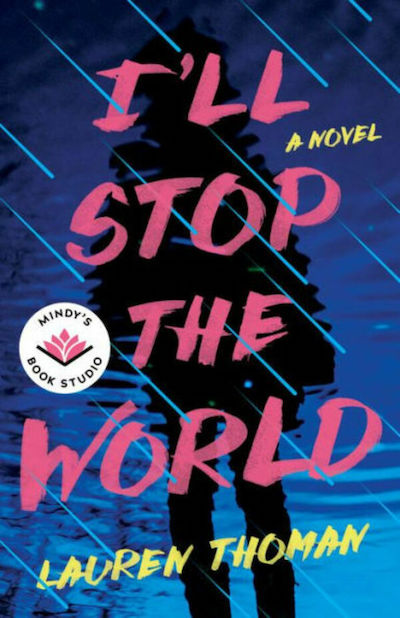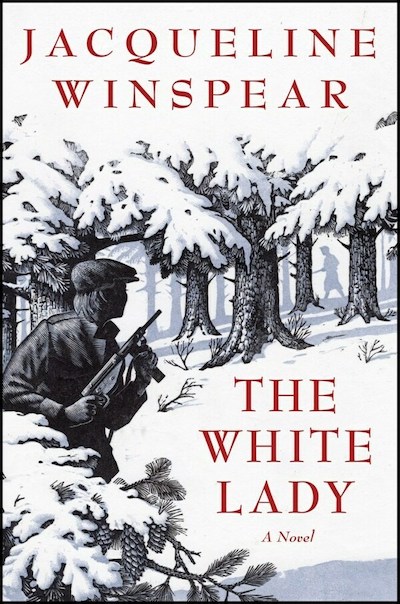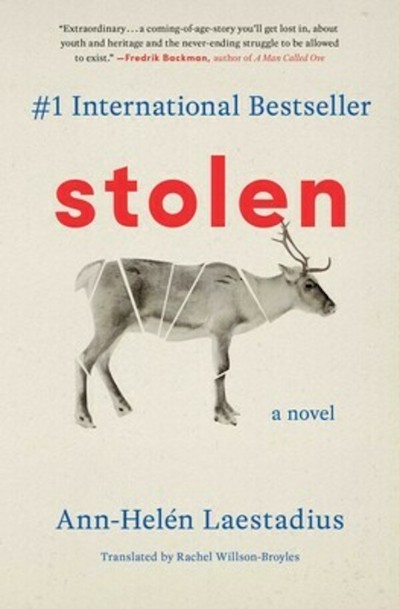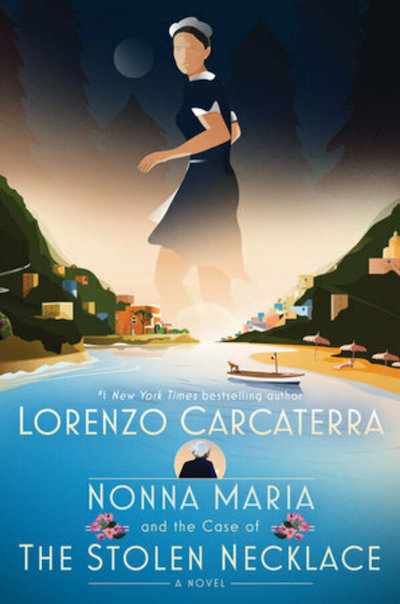“With most first times, you don’t really know it’s the beginning of something,” explains Indian surgeon Dr. Kaiser Shah in a letter to his estranged daughter as he prepares for her to visit. And so it is with the practice that engulfed and destroyed Dr. K’s professional life in an unnamed oil-rich country. The task in question—you must remember, he says, it wasn’t his whole job!—is never mentioned directly, and certainly not described, with the doctor convincing himself ever harder that his secrecy is motivated by benevolence toward his lessors. The punishment for stealing is hand amputation, and before he began “helping out Corrections from time to time,” the procedure was much worse. The story of his involvement in this horror, and how it slowly eats his family life, friendships, and any sense of an inner life, is absorbing; adding a striking air is the doctor’s struggle toward self-acceptance in his letters to his daughter. Extremes underlie the violence here: Dr. K’s quiet sycophancy toward his superiors compared to his friend/rival’s gluttony; his love for his daughter compared to her disgust at his work; his initial bootlicking acceptance of the amputation work compared to his feelings about it after a shocking pivot. Those who enjoy an introspective read are the audience for this one, and they will want to go back to Waheed’s award-winning debut, The Collaborator, for more from this author.
Star
It might be a while since you read a book with teenage protagonists. It’s time. This coming-of-age story has characters who are adolescents to the core, spending their too-fast days on intense friendships, pulling away from parents, and fearing that their high school woes are their destiny. Small-town Warren High School in 2023 is the setting, and the story centers on Justin Warren, whose name is no coincidence: the school is named after his grandparents, who were killed in a fire at the school years before, his mother an infant in the car outside. Things haven’t gone well for Justin. He’s not going to college and he’s in love with his best friend, Alyssa Vizcaino (while they’re seatmates in every class because their last names “function as the alphabetical equivalent of an arranged marriage,” she’s not interested). Then there’s a bizarre twist: an accident throws Justin over a bridge and into…1985. He’s not born yet, his grandparents are still alive, and he still has a chance to change his 2023 lot in life. He meets fellow teen Rose Yin (he’s her pen pal who’s come for a fun visit!), and the two set out to solve a mystery that could mean the world to Justin. Romance is thrown in of course, including a sweet same-sex relationship; combined with the mystery and the tricky logistics of time traveling back to your own town and family in the past, this is one to recommend to book groups and all who like an emotional saga.
A brilliant and moving telling of a Black American family’s struggle to survive despite traumas both old and new. It’s 1981 Detroit, and the Armstead family is celebrating Ozro’s 37th birthday. Treated to lunch by his brother, with a large celebration planned for that night, Ozro heads back to work. Except he never gets there. Ozro disappears, leaving his briefcase and suit coat in his office, abandoning his wife Deborah, his young daughter Trinity, his family and friends. Shifting between the perspectives of Ozro, Deborah, and Trinity, Gray reaches back to Orzo’s time as part of the Great Migration, traveling from the south to Detroit in the 1970s; to his early courtship with Deborah, an aspiring singer; and to Trinity growing up in a world that’s been shattered. Ozro’s disappearance is like the sun, with the other characters as moons, forever circling around it. “I wondered about him all the time because absence was not the same as death,” says Trinity. “It was worse, given all the not knowing.” But it turns out that the mystery of Ozro’s vanishing is only one in a series of traumas that extend from his childhood to his death. Beautifully executed and tremendously poignant, this book is absolutely perfect for reading groups.
A wonderfully constructed thriller with several narratives, ranging from the 1st century to the present, that eventually come together in the most satisfying of ways. At the outset we have a newly elected pope who has created havoc within the Church with his appointment of a nun, Elisabetta Celestino, as his secretary of state. At the same time, a strip of ancient papyrus that comes from the long-lost Gospel of Mary Magdalene is discovered in a Cairo museum; just a snippet, it still manages to contain shocking information about the role of women in the early Church. It’s stolen and sold to a powerful, conservative U.S. billionaire—and collector of early Christian writings—who wants nothing more than to suppress the content. Alternating with the present-day narratives is the story of Mary Magdalene herself as we follow her from Jerusalem to Egypt to Ancient Rome. At the book’s center is Harvard Divinity School professor Cal Donovan, the protagonist of several of Cooper’s novels, the lynch pin who connects all the narratives. Often thrillers with historical backgrounds like this get weighed down with too much information and overly elaborate plots. But readers will move through this book like a hot knife through butter. For fans of Dan Brown and Steve Berry.
Jacqueline Winspear, author of the hugely popular mystery Maisie Dobbbs series set in England during WWII, here moves into the post-war world with a new heroine. Elinor White has had a lifetime of espionage. Born in Brussels, daughters of a British mother and a Belgian father who died in the early years of the WWI, she and her older sister spent WWI in Brussels, working as trained spies, going so far as derailing German supply trains in the dead of night. By age 14, already an expert markswoman, Elinor moves with her family to England. But by the beginning of WWII, she’s back in the espionage game, although eventually a terrible injury behind enemy lines sends her back to England and a lengthy hospitalization. When the war finally ends, she moves to the country, promising to forget the past and live a life of monotony. But when the lives of a neighboring family are threatened—they too are seeking anonymity—Elinor becomes involved, facing the country’s largest crime family head on. Throughout, readers will sense that Elinor is keeping something from us, and when her secret is finally revealed it brings about a type of healing. As always, Winspear is brilliant at bringing us into the past and into the lives of women, so often left out of accounts of war efforts. Winspear fans will find much to enjoy here, as will other readers of historical fiction.
Elsa knows you have to keep your hands in the sled so they’re not sliced by sharp ice. She’s learning to sew gákti, her Sámi family’s traditional clothes. She’s even big enough to surprise her parents by skiing to the reindeer corral and feeding the animals by herself. But one day, when she gets there, in the opening of this unusual and immersive novel, Nástegallu, the reindeer her father has given her as her own, has been murdered. More terrifying, the killer stares at Elsa and draws his finger across his throat to show that she’d better keep her mouth shut. The lonely terror triggered by this gruesome event seeps into Elsa’s bones and shapes her life for the decades spanned by the book. As a frightened child and later a fledgling Sámi-rights activist, Elsa stands on the tenuous border between the indigenous reindeer herders who are trying to maintain their traditional way of life and the more modern Swedes around them who treat the “bloody Lapps” (Lapp is a slur) as either entitled leeches on the state or quaint artifacts of pastoral innocence. Always at the center are the reindeer and the serial killing of them, a destruction of Sami food, transport, heat, and sense of self. A reindeer serial killer? I know. But this is one of those books that will draw you in, teach you, and stay with you. Sámi journalist Laestadius’s adult debut, this book won Sweden’s Book of the Year prize in 2021 and is being adapted into a film that will be on Netflix in 2024
Having loved Nonna Maria and the Runaway Bride, I started Carcaterra’s second in the series with some trepidation. Would it hold up to the first? But I’m happy to report that the newest Nonna book provides all the pleasures of the earlier title—and then some. If you aren’t familiar with Nonna Maria, then make it a point to remedy that. A widowed grandmother, Nonna Maria, in an oh-so-subtle way, runs the island of Ischia, just 20 miles from Naples. Through her myriad connections, which include the carabinieri, members of organized crime, the clergy, and of course family, Nonna rights many wrongs—all while cooking the most delectable meals. In this installment, Nonna Maria’s goddaughter, who works as a maid, is accused of stealing a necklace while a woman, who was once a native, returns to the island, only to be murdered. Through Nonna’s investigations, we learn more about how the island, and its economy, is changing, while the conservative social mores that are such a part of island life live on. Cozy readers will love this book both for the indomitable character of Nonna Maria and the chance to travel to this paradise in the Bay of Naples.
A powerful coming-of-age novel that gradually, and brilliantly, morphs into crime fiction. Sarah Taylor didn’t apply to the prestigious, all-girl prep school Saint Ambrose. Her mother—and sole parent—who works as a lunch lady and barely has $200 in the bank, completed her application. “You’re nationwide smart, Sarah, not small town bright,” her mother reminds her when dropping her off on the first day. But Sarah, dressed all in black, with hair dyed to match, isn’t exactly fitting in at Saint Ambrose, and her diagnosis of bipolar with mania doesn’t help. But the worst is queen mean Greta, who, along with her court, goes after Sarah, humiliating her whenever there’s an opportunity—including Xeroxing and distributing a very personal essay Sarah wrote about being diagnosed bipolar. But slowly Sarah starts to build alliances, including “hot RA,” her incredibly handsome resident advisor, and Strots, her privileged, tough as nails, super-jock roommate, who’s gay and has her own set of challenges (the novel’s set in 1991). Serious stuff, but Sarah has a wild sense of humor that keeps you glued to the page, and the depiction of a New England prep school is spot on. Tensions mount, hatreds grow, violence is inevitable, the community becomes unglued, and readers are left gasping. As Sarah says: “There’s going to be no setting what just happened to rights. Ever.” Fans of Donna Tartt’s The Secret History and Rebecca Makkai’s forthcoming I Have Some Questions for You will love this.
A wonderful, moving stand-alone in which Sutanto, author of the Aunties series, is at the absolute top of her game. Sixty-year-old Vera Wong is lonely, although she’d never admit it. A widower, she’s the mother of a lawyer consumed by work—he rarely returns her texts, even though she offers such good advice!— and her days consist of a 6 am brisk walk through San Francisco’s Chinatown—she needs to get her steps in!—then opening her tea shop which, on the best of days, has only one customer. Extraordinarily opinionated, quite a bit eccentric, yet utterly charming, Vera’s voice is captivating. But readers will be completely beguiled after she comes downstairs one morning (she lives above the shop) and discovers a young man lying on the floor. She does call the cops, and tries her very, very best not to disturb the crime scene, but not before prying a flash drive out of the man’s very dead hands. Then the novel takes off as Vera—believing the cops are incapable of solving the crime—assumes the role of detective. In the process, she befriends several young people, including both the victim’s wife and his brother, and while Vera still considers them all to be prime suspects, she can’t help but care for them. Initially this protagonist may seem like the cliché of the dominating Chinese mom. But Vera, it turns out, is pretty damaged herself, much like her new, thirty-something friends. Come for the mystery, but stay for the healing. One of the best cozies I’ve read this year.
Yes, it’s only October. But my money is on Bad Summer People as the best beach book of the summer of 2023. Set in Salcombe, a made-up community on Fire Island—not the like the gay Pines, more the reclusive and ritzy Saltaire—this book, in the great literary tradition of Peyton Place, has it all: adultery, fashion, tons of gossip, backbiting, lying, hot sex with the tennis pro, tasteful plastic surgery, alcoholism, and even a corpse. Plus the sort of casual racism and classism liberal one-percenters indulge in. It opens with a prologue, set at the end of August, in which a body is discovered face down off the boardwalk. The book then backs up to late June, as the all-white residents arrive from the Upper East side and Scarsdale for the start of a new season. From there we follow the tumultuous summer in chronological order, moving quite handily among a group of narrators, from the above-mentioned Stanford tennis coach to the Filipino nanny to the gay Yale student/bartender and many more. At the gravitational center of the book are Jen Weinstein and Lauren Parker, the “it moms” who married into Salcombe—their husbands are best friends—and oversee the social action. Not another word from me, lest I spoil any of the fun, except to say the identities of both the victim and the murderer pack quite the punch. This book really hits the sweet spot for popular fiction and will appeal to a broad swathe of readers.










